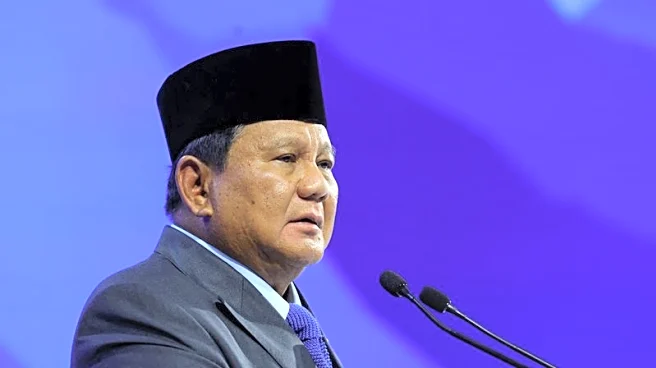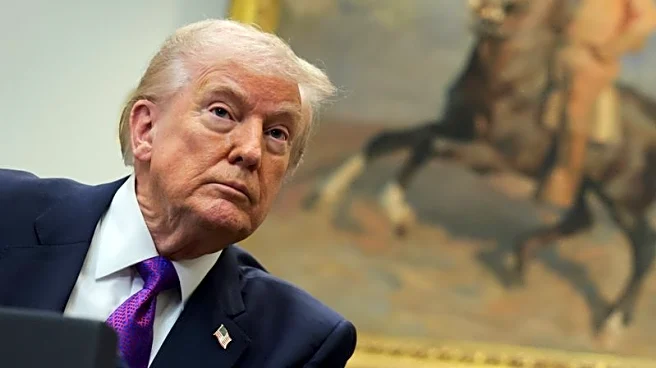What is the story about?
What's Happening?
The Minnesota Timberwolves are evaluating their options for Johnny Juzang, who has shown remarkable performance during the preseason. Signed to a training camp deal in August, Juzang has demonstrated his shooting prowess, averaging 14.7 points and 3.3 rebounds per game while shooting 57.9 percent from three-point range. His performance has made him a strong candidate for a roster spot, potentially on a two-way contract. Juzang, who previously played for the Utah Jazz, was a key rotational player, averaging 8.9 points and shooting 37.6 percent from beyond the arc. The Timberwolves are considering keeping him on a two-way deal to maintain financial flexibility while benefiting from his shooting skills.
Why It's Important?
Juzang's potential inclusion in the Timberwolves' roster could significantly enhance their offensive capabilities, particularly with his three-point shooting. In the current NBA landscape, where financial flexibility is crucial, a two-way contract allows the Timberwolves to manage their budget effectively while retaining a player with high potential. This move could also impact the team's strategy, as they might need to adjust their current two-way player lineup, possibly affecting players like Tristen Newton or Enrique Freeman. Juzang's performance could influence the team's decisions regarding roster composition and financial planning.
What's Next?
The Timberwolves are likely to finalize their decision on Juzang's contract status before the regular season begins. If Juzang is signed to a two-way contract, the team will need to reassess their current two-way players, potentially leading to roster changes. The decision will also depend on the team's strategic priorities and financial considerations. Juzang's continued performance in preseason games will be crucial in determining his future with the Timberwolves.
Beyond the Headlines
Juzang's situation highlights the broader trend in the NBA of teams seeking financial flexibility while maximizing player potential. The use of two-way contracts has become a strategic tool for managing talent and budget constraints. Juzang's case also underscores the importance of preseason performance for players on the fringe of roster spots, as it can significantly impact their career trajectory.















